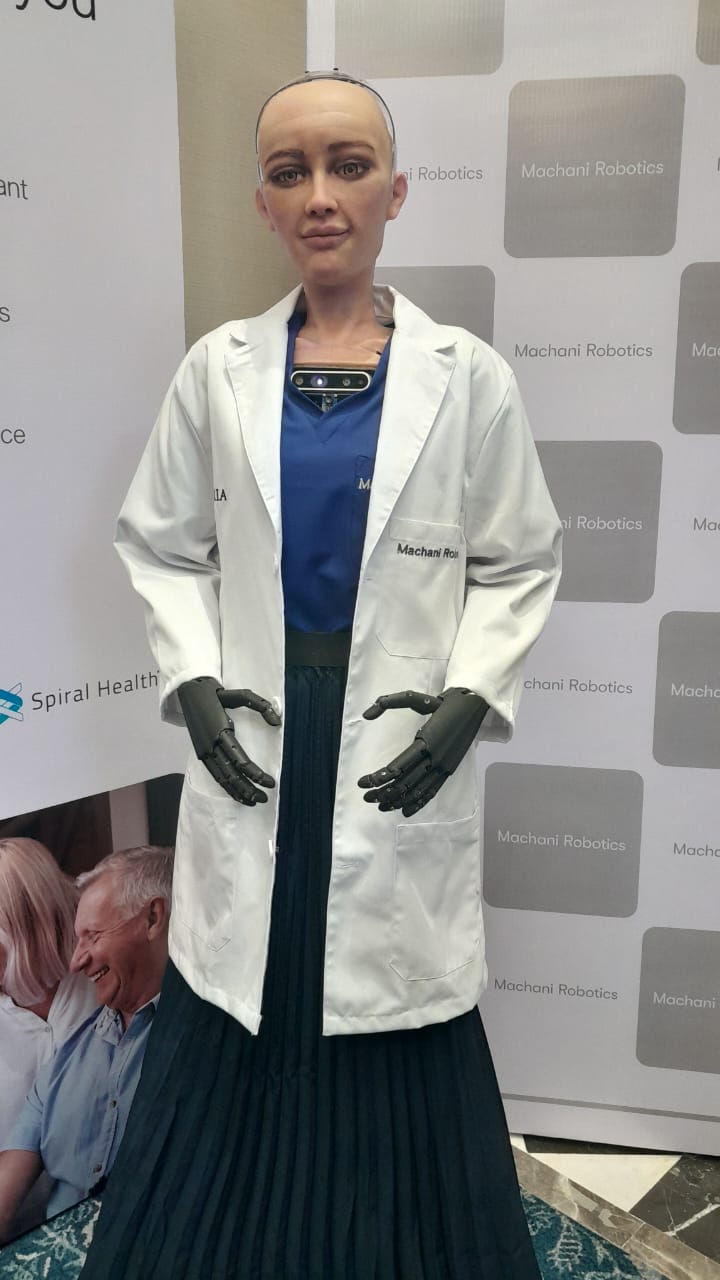Written by : Nikita Saha
July 22, 2024

Speaking at the third CII Digital Health Summit, Paul emphasized the transformative potential of AI in healthcare practice, public health, and health professional education.
NITI Aayog Member-Health VK Paul has asserted that AI in healthcare has arrived in India.
According to him, the digital health scene in the country is set to change very rapidly.
Speaking at the third CII Digital Health Summit, Paul emphasized the transformative potential of AI in healthcare practice, public health, and health professional education.
"Artificial Intelligence is going to change health care practice, public health, and health professional education. We are at the cusp of revolution. Digital health has been evolving for a period of time but with AI, machine learning, deep learning, intelligent learning and intelligent robotics the scene is set to change very rapidly," Paul remarked.
Paul further noted that India should aim to become a global leader in digital health, calling for contributions from all sectors of society.
"In today's summit, we can see some very significant developments which are happening at a rapid pace. India's destiny is to lead the world in digital health, and in AI for health. That is the endeavor that we should really work towards. Per the NITI Aayog member, policy enablers, the private sector, industry, and academia can contribute to the health of the citizens and people at large around the globe.
"Surveillance, prediction, and targeting are areas where we would like to collaborate with the industry. There are emerging possibilities in digital healthcare powered by AI. AI can be used to improve the quality of learning and analysis. There's a potential for individual tutors to support learning in Digital Healthcare," Paul noted.
According to Paul, The Digital Personal Data Protection (DPDP) Act, 2023 is crucial for healthcare and the stakeholders should start working in that direction.
"Today we can say AI in healthcare has arrived in India. The DPDP act is now available to us. It is so critical in healthcare. Let's start working in this direction," Paul added.
He further informed that the Global Initiative on Digital Health (GIDH) has been initiated to create an ecosystem of digital healthcare across countries. Moreover, the NITI Aayog member urged the industry stakeholders to align with the ABDM goals and support the government’s flagship program.
"India is destined to lead this digital transformation. The learning for physicians is about decision-making. From recall to comprehension to synthesis, and the highest level is problem-solving," he added,
He also called for the creation of an R&D ecosystem for AI, ML, and DeepTech.
"Evidence is needed. Create an academic pathway for shared R&D. Health records loaded on ABDM, out of 40 crores, private is just 17%. We request private hospitals and healthcare providers to join this in large numbers," he urged.
At the event, Rhea, a robot showcased at the Summit, elaborated on AI's role in enhancing the healthcare system in India.

AI Robot Rhea at CII Digital Health Summit on July 19, 2024
According to the robot, AI can greatly enhance the healthcare system in India by enabling predictive analytics for preventive measures, automating routine tasks, offering decision support for diagnosis and treatment plans, and improving the personalization of patient care.
Further, the AI can also aid in the management of medical records and resources, the robot stated.
Addressing the potential of AI to replace doctors, Rhea said, "While the AI in robots like myself can support and enhance the work of doctors, we cannot replace their experience, inhibition, and personal touch that doctors provide. We are here to assist and work alongside healthcare professionals to improve patient care."